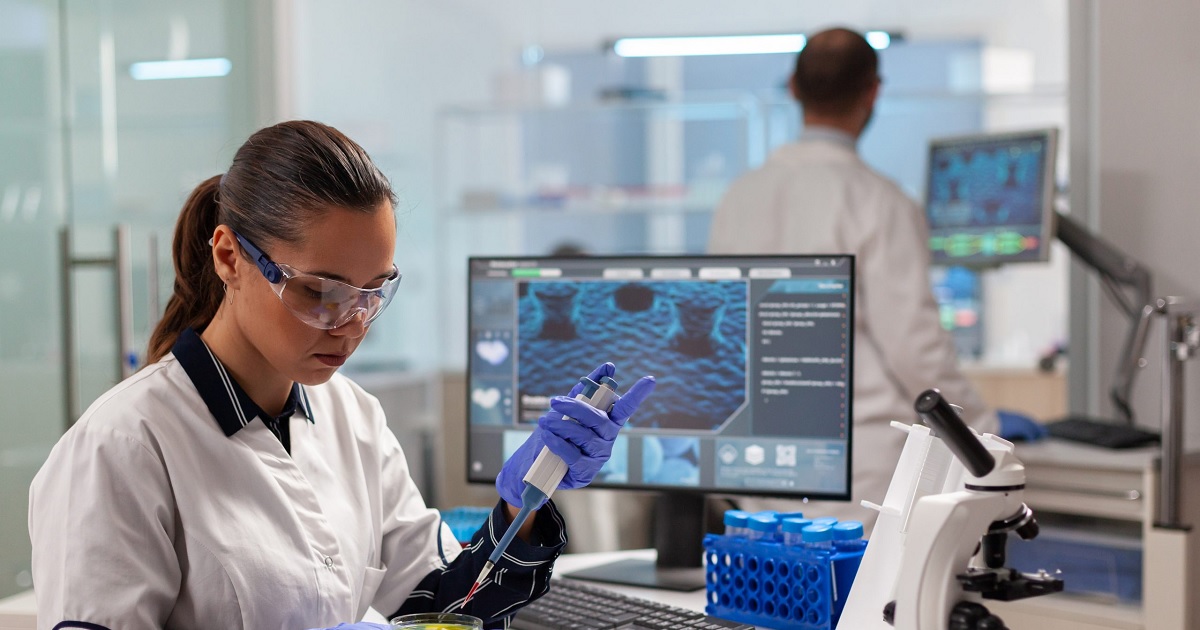
Industrial Impact
TARA Biosystems | November 03, 2021
TARA Biosystemsa, biotechnology company harnessing human biology and data to transform cardiac drug discovery, today announced a collaboration with Scipher Medicine, a precision medicine company matching patients with the most effective therapy. The collaboration will address a critical unmet need for effective therapeutics in cardiac laminopathies.
Cardiac laminopathies, associated with mutations in the LMNA gene, can result in electrical and mechanical changes in the heart. These changes can have profound clinical consequences, including cardiomyopathy, sudden cardiac death, and end-stage heart failure. At present, therapies that correct the underlying pathologies do not exist.
“This collaboration demonstrates the transformative potential of combining biology-driven data with network biology to further drug discovery and development and unlock new medicines and therapeutics,”
said Misti Ushio, PhD, CEO of TARA Biosystems
Scipher will leverage human molecular data analyzed by its Spectra™ platform, which includes data from TARA’s BiowireTM II LMNA disease models, to identify novel targets for a stratified disease population. This approach aims to identify proteins upstream and downstream of LMNA signaling within the Spectra™ network model. The identified targets will be evaluated in TARA’s BiowireTM II platform, which consists of induced pluripotent stem cell-derived human cardiac tissue models, including a repertoire of healthy, gene-edited, patient-derived, and drug-induced phenotypes of human disease.
“The Spectra platform uniquely integrates AI with the protein network of human cells to identify novel targets in highly complex and debilitating diseases such as laminopathy,” said Slava Akmaev, PhD, CTO, and Head of Therapeutics at Scipher Medicine. “By interrogating the network neighborhood of LMNA and its relationship with the proteins appropriate for targeted therapeutics we are confident that we can identify several novel and relevant drug targets.”
“The TARA platform is highly versatile and can capture robust physiologic endpoints of human cardiac function, including contractility, electrophysiology, calcium signaling, structure, as well as genomic, proteomic, and metabolic profiles,” said Robert Langer, PhD, Board of Directors at TARA Biosystems. “We believe that TARA and Scipher combined efforts have the potential to lead to drug development that enables a truly personalized treatment for patients.”
Under the terms of the partnership, TARA has the exclusive option to progress identified targets into drug discovery and clinical development. Scipher is eligible to receive milestone payments and royalties. TARA will retain the rights for the development, and commercialization of therapeutics for the selected targets.
“The partnership with TARA is a further example of how our disease agnostic Spectra platform can be applied to where novel targets are most needed,” added Alif Saleh, CEO of Scipher. “The ability to quickly validate novel targets identified by Spectra on TARA’s human tissue model platform allows us to rapidly iterate to identify most effective targets.”
About TARA Biosystems, Inc.
Headquartered in New York City, TARA Biosystems harnesses innovations in stem cell biology and tissue engineering to generate in vitro biology that recapitulates human physiology with unprecedented fidelity. Our highly versatile and robust platform captures integrated physiologic endpoints of human cardiac function across a wide repertoire of cardiac disease phenotypes. Our data facilitates decisive evaluation of the efficacy and risk of novel medicines, increasing the probability of success and decreasing long timeframes associated with traditional drug discovery efforts. Safer and more effective new medicines that rapidly make it to market means better health and longer lives, and we believe that benefits people everywhere.
About Spectra
A platform deciphering the complexity of disease by analyzing large patient molecular datasets through the unique lens of the human interactome and AI. Built upon over a decade of experimental research, the platform’s backbone is the network map of human biology explaining how proteins expressed from the human genome interact to cause specific disease phenotypes, providing the wiring diagram needed to interpret dynamic individual patient molecular data to reveal actual disease biology. Spectra™ is not a model but a disease representation rooted in experimental human biology and proprietary patient molecular data, allowing us to identify a patient’s unique disease signature, predict drug response to approved drugs and identify novel drug targets in patients not responding to existing therapies.
About Scipher Medicine®
Scipher Medicine, a precision immunology company, believes that patients deserve simple answers to treatment options based on scientifically backed data. Using our proprietary Spectra Network Biology platform and artificial intelligence, we commercialize blood tests revealing a person's unique molecular disease signature and match such signature to the most effective therapy, ensuring optimal treatment from day one. The patient molecular data generated from our tests further drives the discovery and development of novel and more effective therapeutics. We partner with payers, providers, and pharma along the health care value chain to bring precision medicine to autoimmune diseases.
Read More

MedTech
Outcomes4Me | October 12, 2021
Outcomes4Me Inc., developer of a leading free mobile app and platform to navigate cancer treatment and care, today announced that it has partnered with Invitae Corporation (NYSE: NVTA), a leading medical genetics company, to expand education and access to genetic testing to breast cancer patients and survivors. The collaboration leverages the strengths of Invitae, which supplies clinical grade genetic testing, and Outcomes4Me’s 360-degree, validated and evidence-based cancer support and treatment options via its free and easy-to-use app. Initially and currently available in the United States, patients can now receive genetic counseling through Invitae’s partnership with Genome Medical, get testing, and upload their results within the Outcomes4Me app.There is a misconception that genetic testing is only useful as a preventative tool prior to a cancer diagnosis. According to Outcomes4Me patient data, almost half of users (46 percent) who qualified for testing (based on NCCN Guidelines®) did not receive testing or did not know if they had received testing. However, genetic testing can provide insights that can help inform and refine precision therapy use and clinical treatment trial enrollment. In addition, genetic testing results can be used to help prevent recurrence and reduce incidence of other inherited cancers.
A cancer diagnosis is often overwhelming for patients and their families. Outcomes4Me demystifies cancer by providing the most up-to-date and validated research, support, and treatment options, all grounded in science and data and curated according to the patient’s specific diagnosis. Outcomes4Me partners with the researchers, doctors, and academics that set the rigorous standards of cancer care for all treatment providers, including the National Comprehensive Care Network® (NCCN®), Vanderbilt-Ingram Cancer Center (VICC) and Massachusetts General Hospital (MGH). The collaboration with Invitae expands access to genetic testing, a vitally important tool in the patient’s cancer care arsenal.
“Outcomes4Me is an indispensable platform for patients with breast cancer, giving them the personalized knowledge and access to timely new trials and targeted therapies that could lead to better health outcomes. By providing access to our comprehensive genetic testing and counseling services, Outcomes4Me is adding a valuable resource that will empower patients to advance their knowledge, understanding, and therefore, self-advocacy during treatment and survivorship.”
Ed Esplin, M.D., Ph.D., FACMG, FACP, Clinical Geneticist at Invitae
Unlike popular direct-to-consumer genetic testing services, which test for a few specific genetic variants for certain genes, Invitae provides state-of-the-art clinical grade next-generation sequencing-based (NGS) genetic testing that comprehensively analyses more than 80 genes, including all known mutations of the important BRCA1/BRCA2 genes. This comprehensive approach, combined with associated genetic counseling, not only provides insights for cancer patients, but also for family members who may be at risk.
“Our collaboration with Invitae reinforces Outcomes4Me’s mission to give patients back control. Because of this work with Invitae, our valued community now has rare direct access to a much-needed testing service. Outcomes4Me will proudly continue to democratize the best in cancer treatment, research, and support by removing barriers and bias in information flow.”
Maya R. Said, Sc. D., Founder and CEO of Outcomes4Me
About Invitae
Invitae Corporation (NYSE: NVTA) is a leading medical genetics company whose mission is to bring comprehensive genetic information into mainstream medicine to improve healthcare for billions of people. Invitae's goal is to aggregate the world's genetic tests into a single service with higher quality, faster turnaround time, and lower prices.
About Outcomes4Me
Outcomes4Me is on a mission to improve health outcomes by empowering patients with understandable, relevant and evidence-based information. Outcomes4Me has developed a platform for shared decision-making between patients and providers. The platform harnesses regulatory-grade, real-world data and patient experiences generating deeper insights and better outcomes to improve care and accelerate research. The Outcomes4Me mobile app enables cancer patients to make decisions and take control of their care based on information that is personalized to their specific condition, including finding treatment options, matching to clinical trials, and tracking and managing symptoms. Based in Boston, Massachusetts, Outcomes4Me, a woman-led company, comprises seasoned healthcare, oncology, pharmaceutical, consumer and technology veterans.
Read More

Drug Target Review | November 21, 2019
Researchers have used a computational model to learn how to manipulate stem cell arrangement, including those that may eventually be useful in generating personalised organs. According to the team, their discovery could be used to develop model organs grown from a patient’s own cells, which could ‘revolutionise’ how diseases are treated by increasing disease understanding or testing drugs. The study was conducted by a team from Gladstone Institutes, in collaboration with Boston University, both US. Induced pluripotent stem (iPS) cells, similar to the stem cells found in an embryo, have the potential to become nearly every type of cell in the body. Although researchers can prompt these cells into differentiating into specific organ cells, they cannot grow into functioning three-dimensional (3D) organs. “Despite the importance of organisation for functioning tissues, we as scientists have had difficulty creating tissues in a dish with stem cells,” said Ashley Libby, co-first author. “Instead of an organised tissue, we often get a disorganised mix of different cell types.”
Read More